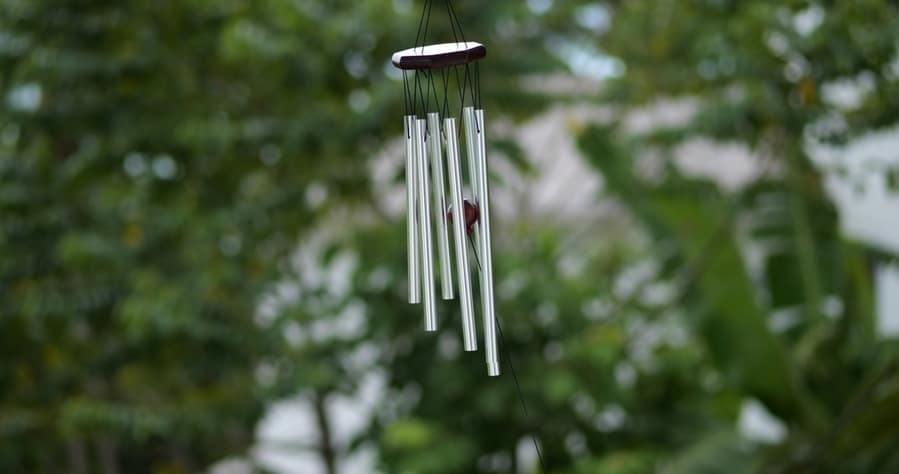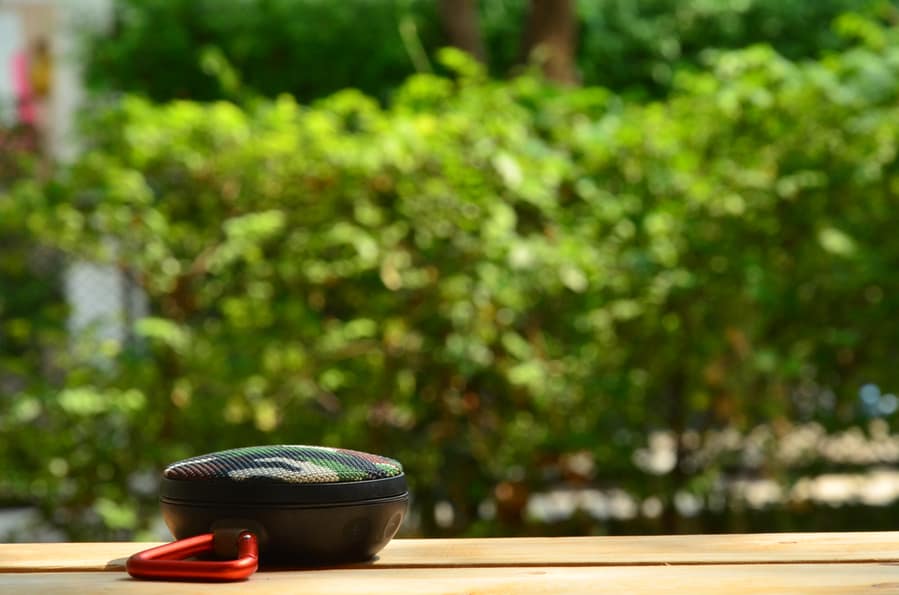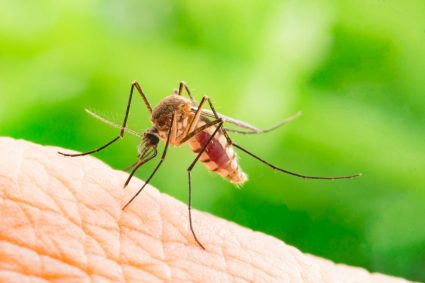
If you have ever woken up to the sound of falling trash cans in your backyard, you must be familiar with the sight of raccoons. These furry little critters can get into almost anything from your dumpsters and chicken coops to your pet food. That is why homeowners try to find ways to deter these animals without hurting them.
It can be tricky to drive away raccoons because they can adapt quickly to any situation. And can be determined when they pursue something they want. Fortunately, you can use sound to scare them away. But what sound do raccoons hate? Continue reading to find out.
Raccoons may be cute, but they can be a nuisance to some people. So it’s essential to find ways to deter them without hurting them. Fortunately, you can scare them with sounds.
Some long noise deterrents are:
- Windchimes
- Radios
- Bio-acoustics
While short term noise deterrents are:
- Firecrackers
- Pots and pans
- Shouting
But raccoons are highly adaptive animals. So, you may need to use different tactics in urban settings where noise is rampant every day.
If you want to scare away raccoons with sounds, the ones below should help.
7 Sounds and Noise That Will Scare Raccoons
Whether you have a chimney, a chicken coop, or a garden, raccoons are not always welcome guests. And if they are becoming a problem, you can try using sound and noise to deter them. It’s both safe and effective at scaring them away.
Long Term Noise Deterrents
Long-term noise deterrents are perfect for scaring away raccoons as long as you live in the same location. But you’ll need to change the position of these items from time to time. As was said, raccoons are very adaptable animals. And they can get used to the sounds if they hear them daily.
Wind Chimes

It may sound pleasant to the ears, but wind chimes can be a passive noise deterrent to keep animals like raccoons away. Although, it’s not a good idea to only use wind chimes because they’ll get used to it after a week or two.
If you already have wind chimes on your property, switching to a more deep-toned chime should keep raccoons on their feet (or paws).
Ensure you change your wind chime’s location every few days for better results. You could also buy various wind chimes with different tones and switch the locations every few days. This way, raccoons will keep getting startled by different sounds.
Radios

Conversations on the radio can trick raccoons into thinking there are humans around. But this may only be effective in rural areas because there is plenty of human noise in cities.
Raccoons living in rural communities are not used to humans and their voices. So the sounds of the radio can deter them from your chicken coop or trash cans.
But as was said, raccoons are very adaptive animals. So they’ll be quick to learn which sounds are dangerous and safe to be around. To avoid this, try switching the station frequently, moving the radio’s location, and adjusting the volume.
Bio-Acoustics

Raccoons are prey to predators like wolves, coyotes, and large predatory birds. And bio-acoustics used the sounds of these animals to scare away these pesky critters.
The internet has plenty of these sounds, like wolf howls, coyote yips, dogs barking, and owls in flight. You can place Bluetooth speakers near your trash cans, gardens, or chicken coop. And play the sounds all night with your phone.
You could also use the sound of fireworks. But this is only a good option if you live in a secluded area since your neighbors may not appreciate the sounds.
Noisemakers

Anything that makes noise can be a deterrent against raccoons, like swinging pans, empty glass bottles, and pinwheels. But like others, passive noisemakers can only be effective if you change their location and sounds from time to time.
Short Term Noise Deterrents
Just like its name, short-term noise deterrents act fast but are short-lasting. If there is a hole in your siding and you hear raccoons, you can use short-term noise deterrents to scare them away. Another scenario where you can use short-term noise deterrents is when you see an actual raccoon.
That said, below are some short-term noise deterrents to scare away raccoons.
Firecrackers

Firecrackers can make gun-shot noise when lit. But it can be dangerous. So, don’t throw them directly at animals, or you’ll hurt them. Instead, it would be best to throw far from people and animals. You must also ensure that you know how to use them.
Firecracker sounds are loud and can easily scare raccoons. So they’ll likely turn right around and run back to the woods.
Pots and Pans

If you don’t have any firecrackers, you can try using some domestic options like metal pots and pans.
You can use a spatula or wooden spoon to bang on your pots and pans, which should make a loud, metallic ringing sound. It should send those pesky raccoons scurrying away, along with other animals like birds and deer.
Even slapping or clapping your hands can be enough to scare raccoons away.
Shouting

If you are short on supplies and your hands are full, you can try shouting at the raccoons instead. Raccoons aren’t used to the sound of yelling. Any noise outside their realm of understanding is enough to scare raccoons away.
But shouting may not work in urban settings. There’s too much noise in the big city. So raccoons are pretty used to the sound of people.
Conclusion
Raccoons can sometimes be unwanted guests on people’s property. That is why people always find ways to deter them without hurting them. And one of the best methods is sound. You can use wind chimes and radios as long-term deterrents and firecrackers and pots and pans as short-term deterrents.
So if you know anyone with a raccoon problem, sharing this article should let them know what sounds like raccoon hate.
Frequently Asked Questions
Why Are Raccoons in Cities?
Raccoons are intelligent, opportunistic, and highly adaptable animals that have learned to live alongside human habitation, especially in urban environments. With an abundant food source and an absence of predators, they appear more in cities than in rural areas.
When Will You See a Raccoon?
Raccoons are typically nocturnal animals. But because they have fewer predators in urban areas, it’s not unusual for you to see them during the day.
What Do Raccoons Eat?
Raccoons are omnivores and can consume various food, including fruits, insects, small rodents, vegetables, compost, and pet food. That is why they thrive more in cities and urban settings.











